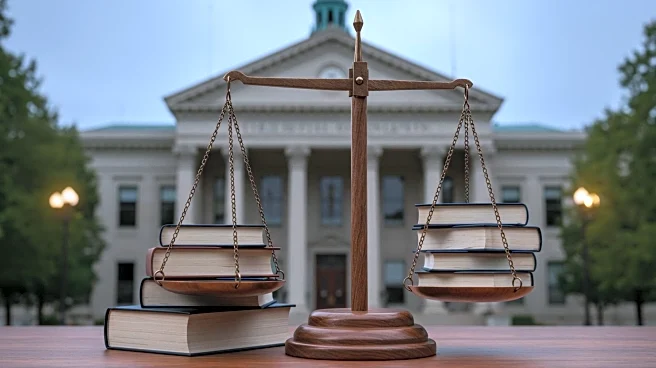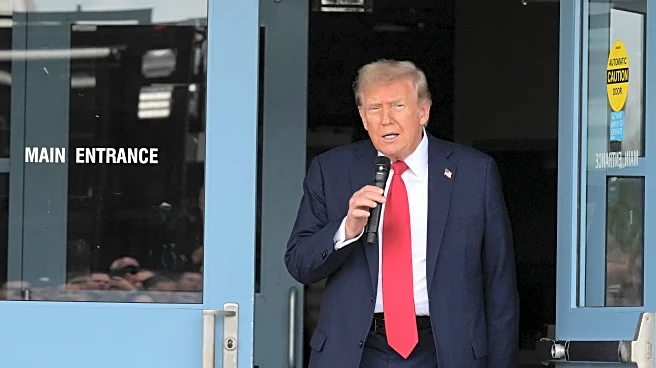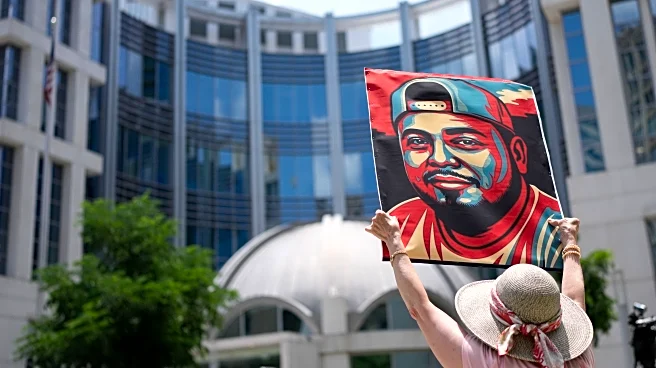What's Happening?
The Justice Department has announced it will not defend a grant program for Hispanic-serving colleges, citing constitutional concerns. The program, established in 1998, provides funding to colleges where at least 25% of undergraduates are Hispanic. The decision follows a lawsuit by Tennessee and an anti-affirmative action group, arguing the program's racial criteria are unconstitutional. The Justice Department's stance aligns with a 2023 Supreme Court ruling against racial balancing. The program, which received $350 million in 2024, supports over 500 institutions. The Hispanic Association of Colleges and Universities has moved to defend the program, highlighting its role in addressing funding disparities.
Why It's Important?
This decision could significantly impact Hispanic-serving institutions, which play a crucial role in educating Latino students. The withdrawal of federal defense may lead to reduced funding, affecting educational opportunities and resources for Hispanic students. The case also reflects broader debates on affirmative action and racial equity in education. The outcome could set a precedent for similar programs, influencing public policy and the allocation of educational resources. Stakeholders, including educational institutions and civil rights groups, are closely monitoring the situation, as it may affect diversity and inclusion efforts nationwide.
What's Next?
The legal battle will continue as the Hispanic Association of Colleges and Universities seeks to defend the program in court. The case's outcome could prompt legislative or policy changes regarding race-based educational funding. Educational institutions may need to explore alternative funding strategies to support Hispanic students. The decision may also influence future legal challenges to affirmative action and similar programs, potentially reshaping the landscape of educational equity in the U.S.












